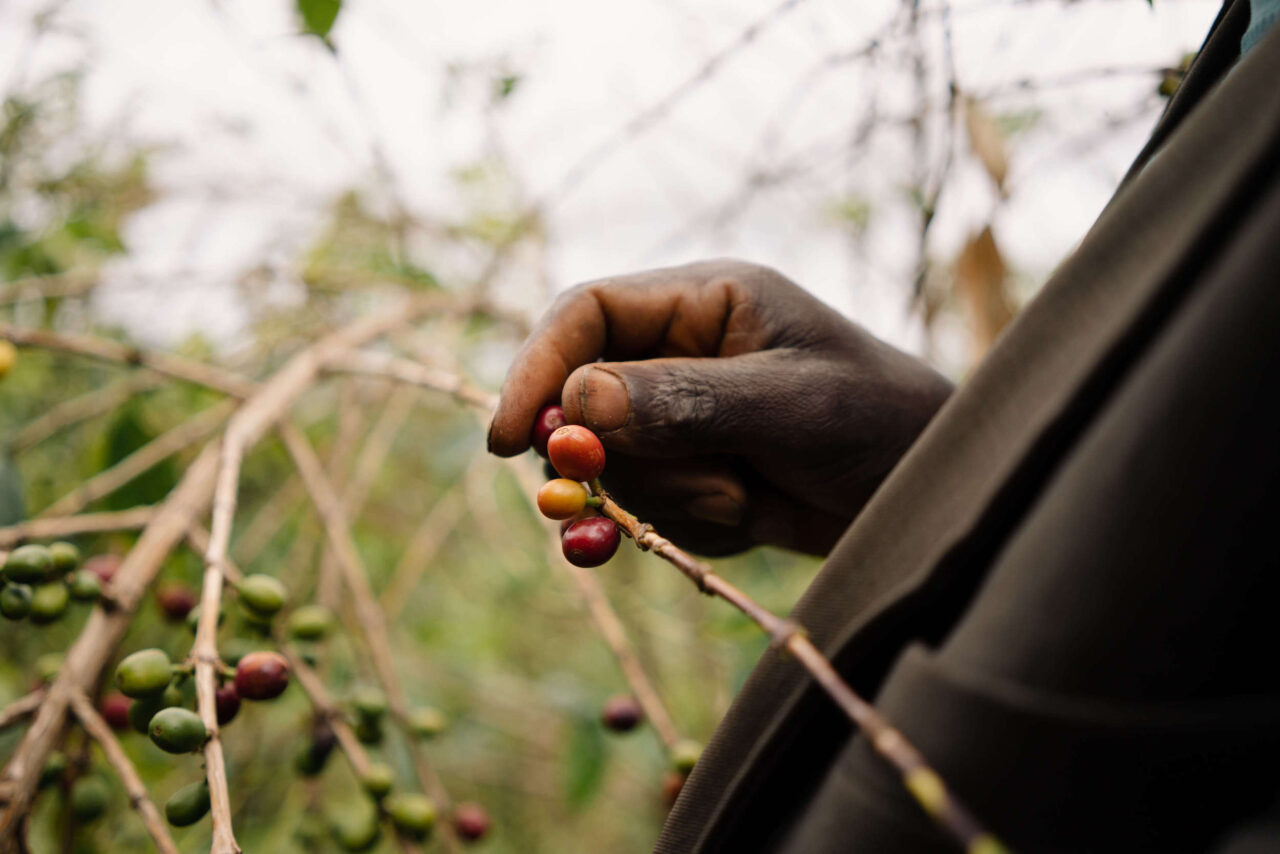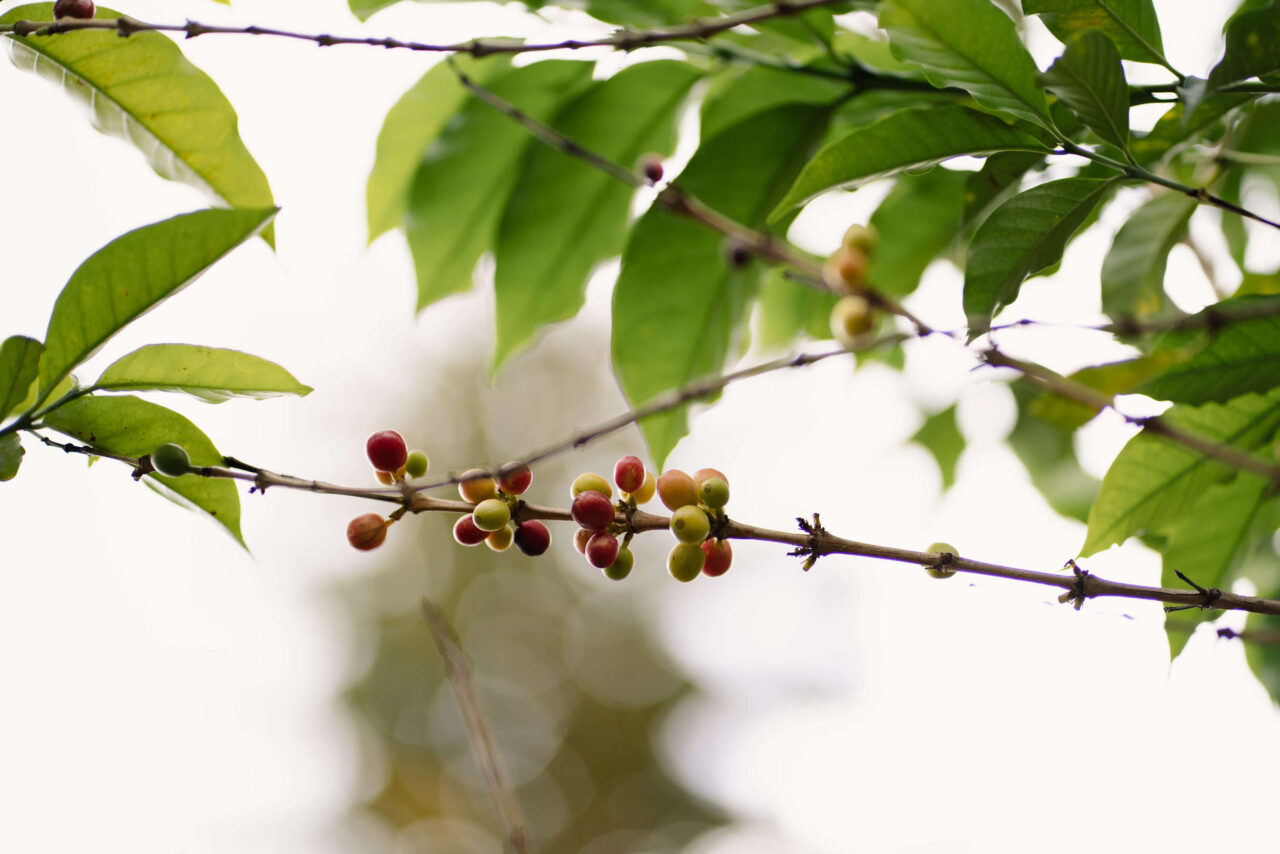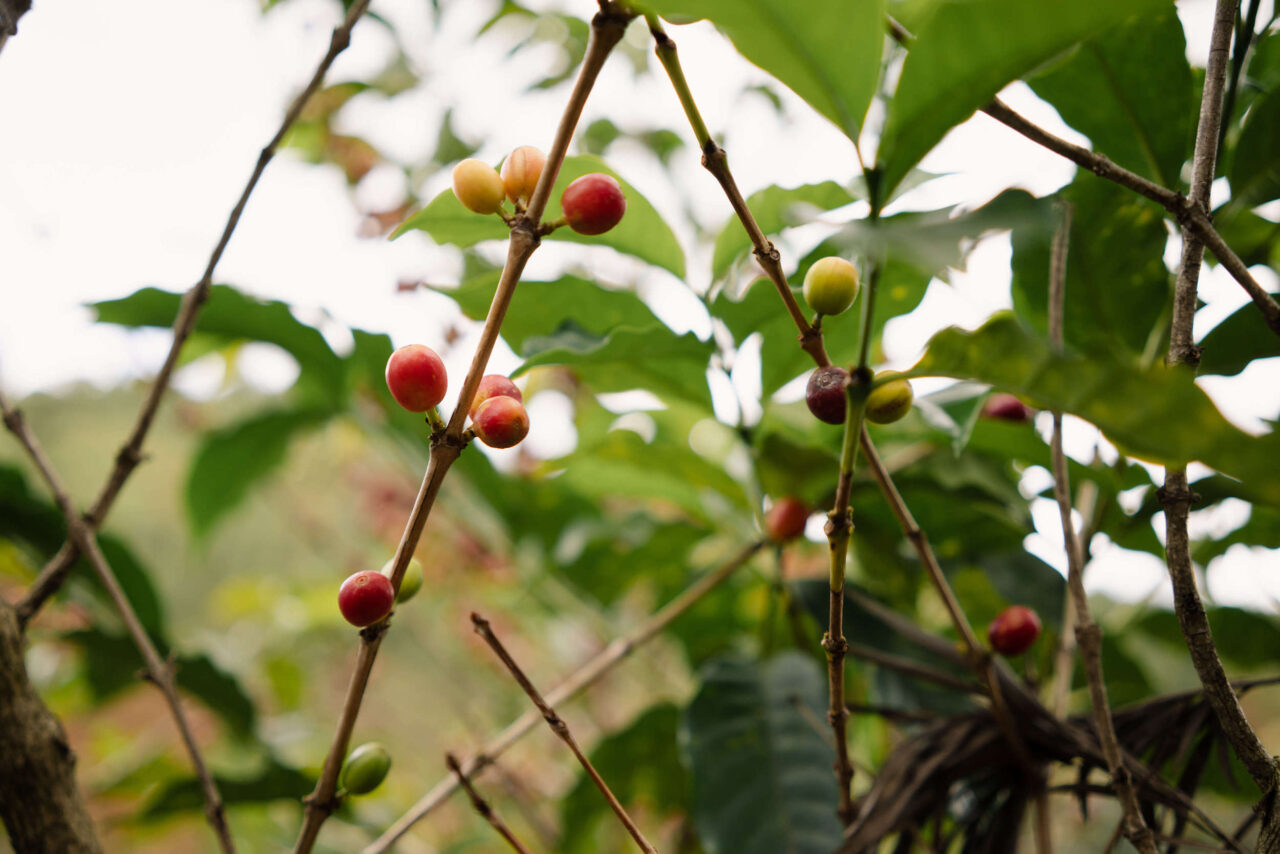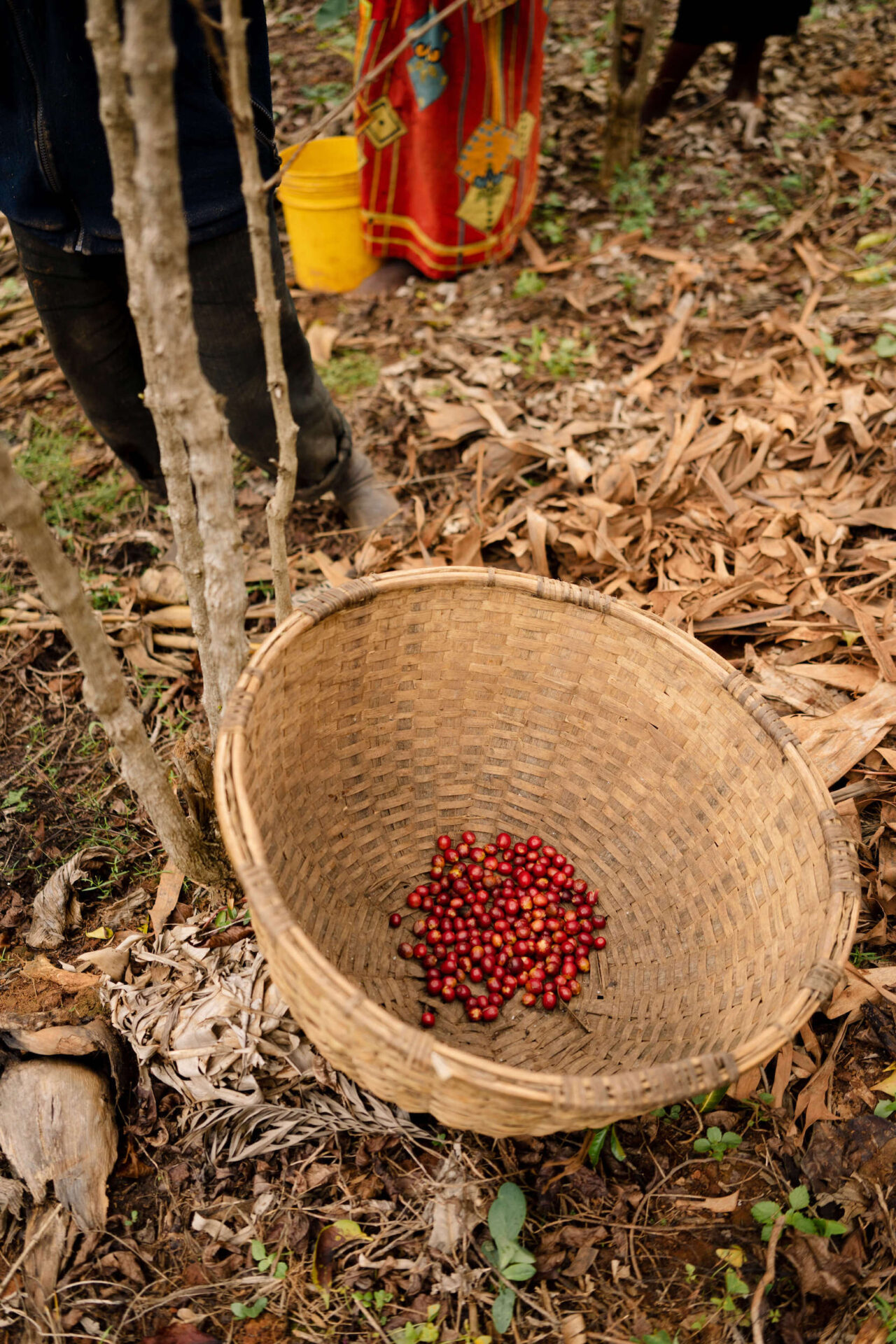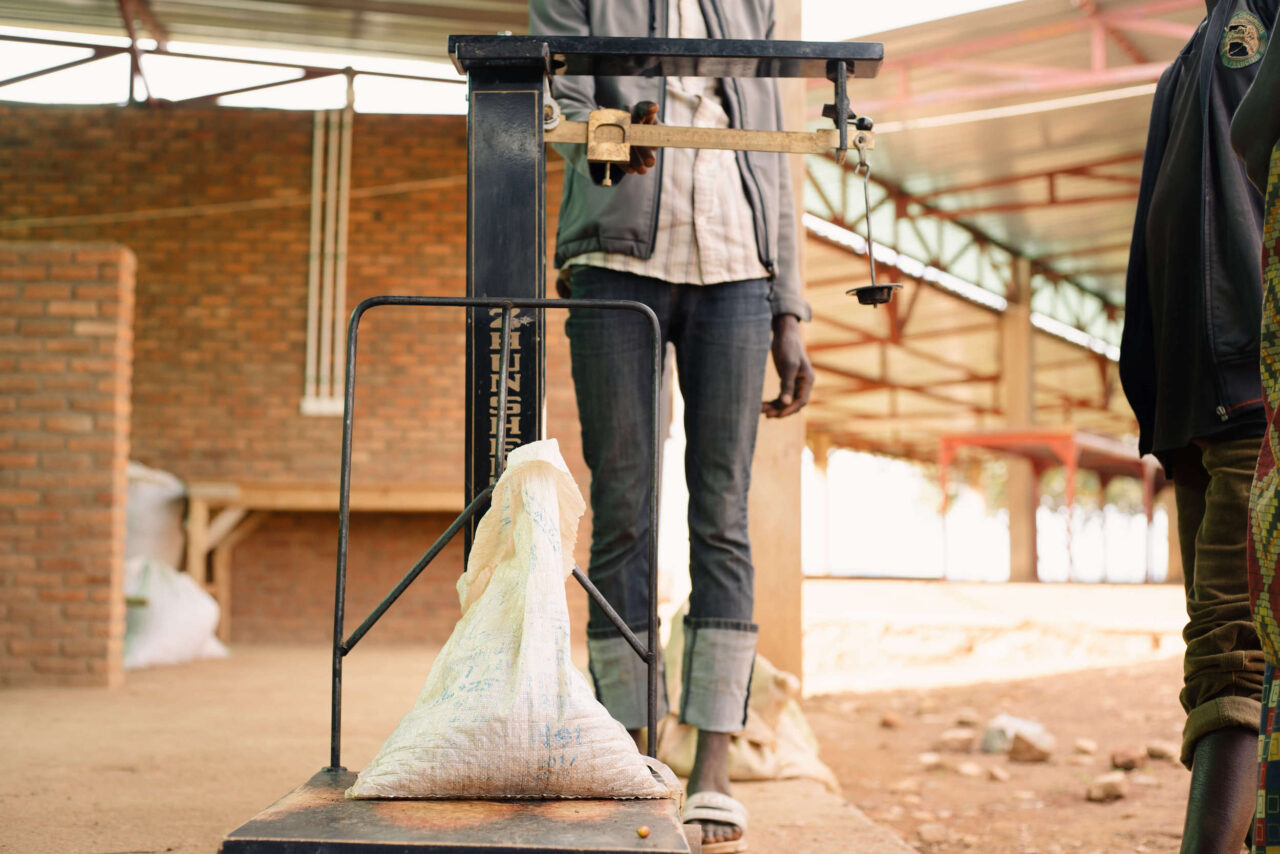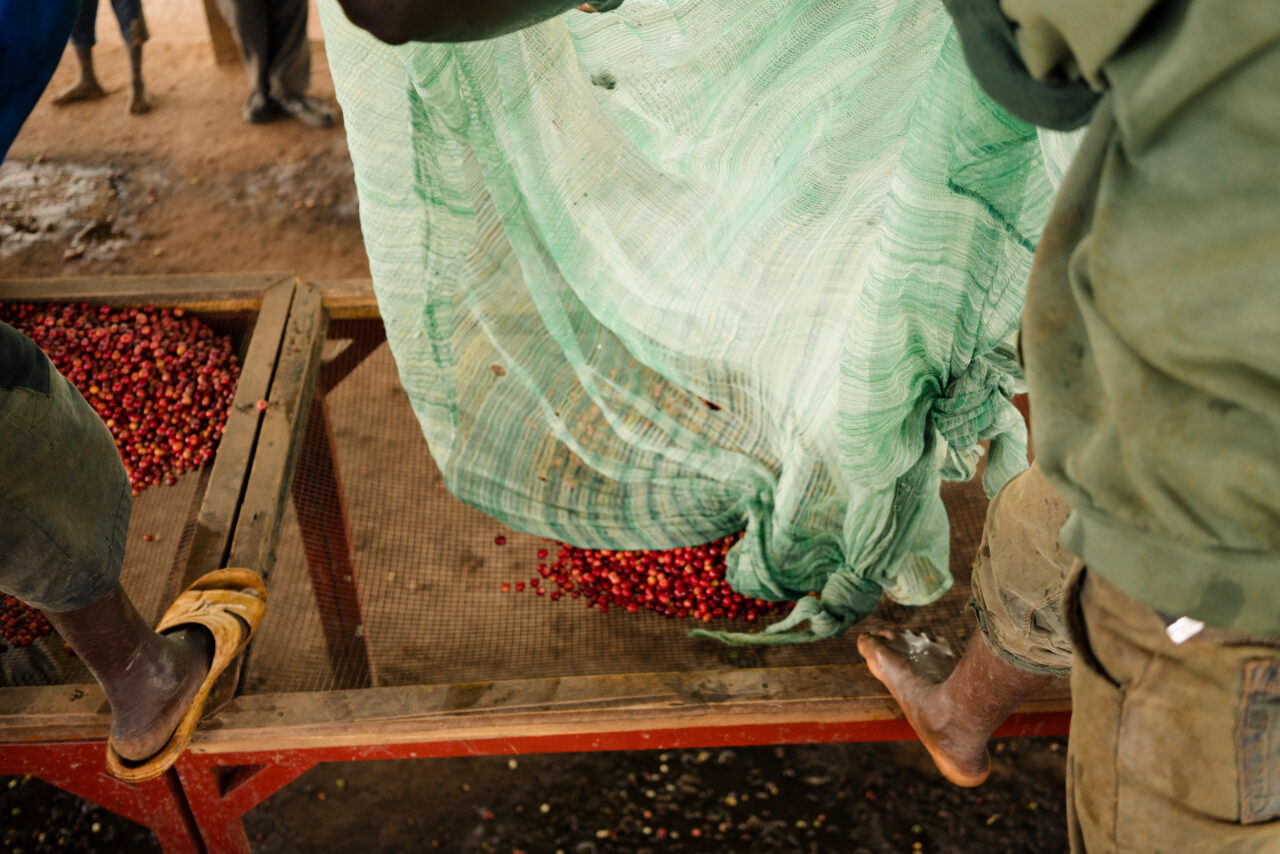A conversation with Long Miles co-founder, Ben Carlson.
It’s always been our vision to be transparent about coffee harvest and production in Burundi. While our mantra is to hold on to hope despite any challenges we might face, the realities of this year’s coffee harvest has stretched our team and the coffee communities that we work with.
Why was coffee harvest in Burundi small this year?
BC: It’s a complex answer. Like our friend and former Managing Director, Lauren Kagori (née Rosenberg) likes to say, “In Burundi, simple is complex and complex is simple.” Overall, there are four things that I would say contributed to the size of Burundi’s harvest this year.
- Soil health. The World Bank recently released a report focused on unpacking climate fragility in Burundi. According to their research, Burundi loses almost 38 million tons of soil and 4% of its gross domestic product to land degradation every year. Half of the households in the country depend on coffee for their livelihoods. The coffee sector alone brings in 90% of the country’s foreign revenue, but over the last forty years severe soil erosion has led to a two-thirds decrease in coffee production, pushing millions back into poverty;
- Fertilizer. We can’t access fertilizer in the country, and it’s illegal to purchase it outside of Burundi. You can only purchase fertilizer from one semi-privatized company in Burundi, but they don’t produce a fertilizer meant for coffee. Usually, we have to place an order for and purchase fertilizer through Burundi’s national coffee board, ODECA (translated from French as “Coffee Development Office”). From our experience, the delivery of fertilizer is always delayed and never available in the quantities that we need;
- Rain. It’s apparent and out of our control. The rainy season in Burundi typically runs from the end of March/beginning of April through May, but over the last three years the rains have stopped just before May. If we had healthy soil and fertilizer, the rain could have stopped and the impact on the coffee crop might have gone unnoticed;
- Old coffee trees. A majority of the coffee trees in Burundi were planted between the 1930s and 1960s under Belgian colonial rule. The newest coffee trees were most likely planted in the 1980s. We’re talking about coffee trees that are about forty-years old! Generally speaking, coffee trees should be replaced every fifteen to twenty years. When we introduced our inaugural pruning campaign and encouraged partner coffee farmers to stump their older coffee trees, it was incredibly difficult to get them on board. It still is! Up until that point, stumping coffee trees was unheard of.
“In Burundi, simple is complex and complex is simple.”
What did we expect this coffee harvest, and what did we actually get?
BC: We expected 1.2 million kgs of harvested cherry. The reality is that we might have reached 500,000 kgs. That’s less than 50% of our expected production, which means 50% less revenue for the farming communities that we work with. Added to this, we’re coming off the back-end of a low harvest in 2020 which means that coffee farmers in Burundi should have experienced a peak in production this year. This all goes back to cyclicity. In 2019, we hit 20% of our average production. In 2020, we hit 50%. This year, the country as a whole hit between 40-45% of its average production.
We were hoping to do more controlled (anaerobic-styled) fermentations using our newly shipped Jacky Bin technology, which we’ve ended up doing but not in the quantity that we expected. With shipping delayed worldwide, our Jacky Bins took much longer than expected to get from Australia to the Dar es Salaam port. They then needed to be trucked from Tanzania across the border into Burundi where they took a couple of weeks to clear customs before our team could eventually collect them. Needless to say, the Jacky Bins got to our washing station a few weeks shy of the end of harvest. We missed the mark there, but are excited to grow this side of our coffee production in the future.
Our goal was also to increase the number of coffee farming families that we work with to maximise our impact, but the number of farmers delivering to our washing stations this season has actually declined. Most farmers across the country have produced between 25-40kg of cherries this season. When you’re producing this amount of cherry, it’s not worthwhile processing and delivering to any washing station.
Is this an issue that just Long Miles is facing?
BC: No, this isn’t a Long Miles thing. It’s happening to coffee producers country-wide.
Every coffee harvest has surprises, both good and bad. Are there any this year that you want to share?
BC: Over the last two years, there’s been a new coffee authority, ODECA, regulating the coffee sector. This kind of turnover happens regularly in Burundi. ODECA has taken over a majority of previously privatized washing stations. With the last three years being low production years, farmers haven’t delivered high yields to their washing stations which means that ODECA hasn’t processed much coffee. Added to this, privately and co-operative owned washing stations were paying a higher price than semi and government-owned washing stations like ODECA’s.
In what we presume is an attempt for them to find more equity, they banned transit centres. This has meant that washing stations have had to collect coffee only from the farmers adjacent to their stations, or those farmers willing to travel further to reach them. In some ways, this is helpful as there’s a better concentration of coffee and farmers who have more direct access to the market.
This is no surprise, but Burundi is a landlocked country. We’ve often faced challenges to get coffee out of the country timely, but in times like these it can take even longer to export coffee. We also can’t dry mill coffee on our own. Applying for a dry mill licence is surrounded by incredible bureaucracy and red tape in Burundi, and there aren’t many options when it comes to where we can mill our coffee. In previous years (this one included), our team has travelled the country looking for options. The dry mill that we’ve previously used is struggling to renew their licence this year, and there are a landslide of challenges that follow suit from this.
“…this isn’t a Long Miles thing. It’s happening to coffee producers country-wide.”
What does all this mean?
BC: This is possibly our best harvest quality in the nine years that we’ve been producing coffee in Burundi. The improved quality of our coffee could be due to the low harvest over the last three years. If you were to draw a comparison between coffee and wine production, this kind of thing sometimes occurs on wine estates that are producing wine from older vineyards. We’re really excited about the coffees that we’ve produced and are working with the same hills, but the reality is that we’ve produced smaller micro-lots this year.
Sourcing coffee is also a unique challenge this year. Previously, we’ve sourced coffees from neighboring producers that have stood out to our team on the cupping table. This year, coffee is limited country-wide so it’s looking like sourcing coffee won’t be possible.
“The sobering reality is that our combined coffee production in 2019, 2020 and 2021 don’t add up to our coffee production in 2018.”
Our team is trying their best to make sure that all our partnering roasters get coffee, but we’re not going to be able to meet everyone’s demands this year and expect to be able to offer less coffee across the board. The sobering reality is that our combined coffee production in 2019, 2020 and 2021 don’t add up to our coffee production in 2018. Knowing the realities of coffee production in Burundi, we’ve recognized the need to be versatile which is one of the reasons why we’re expanding our operations in Kenya and Uganda.
Even thought this year’s coffee harvest has been challenging to navigate, we are incredibly grateful for the coffee communities that we work with and the continued support from our roasting partners across the globe. Thank you. We’re excited to share this year’s coffees with you!
Do you have any questions about this year’s coffee harvest in Burundi? Please get in touch with us!


